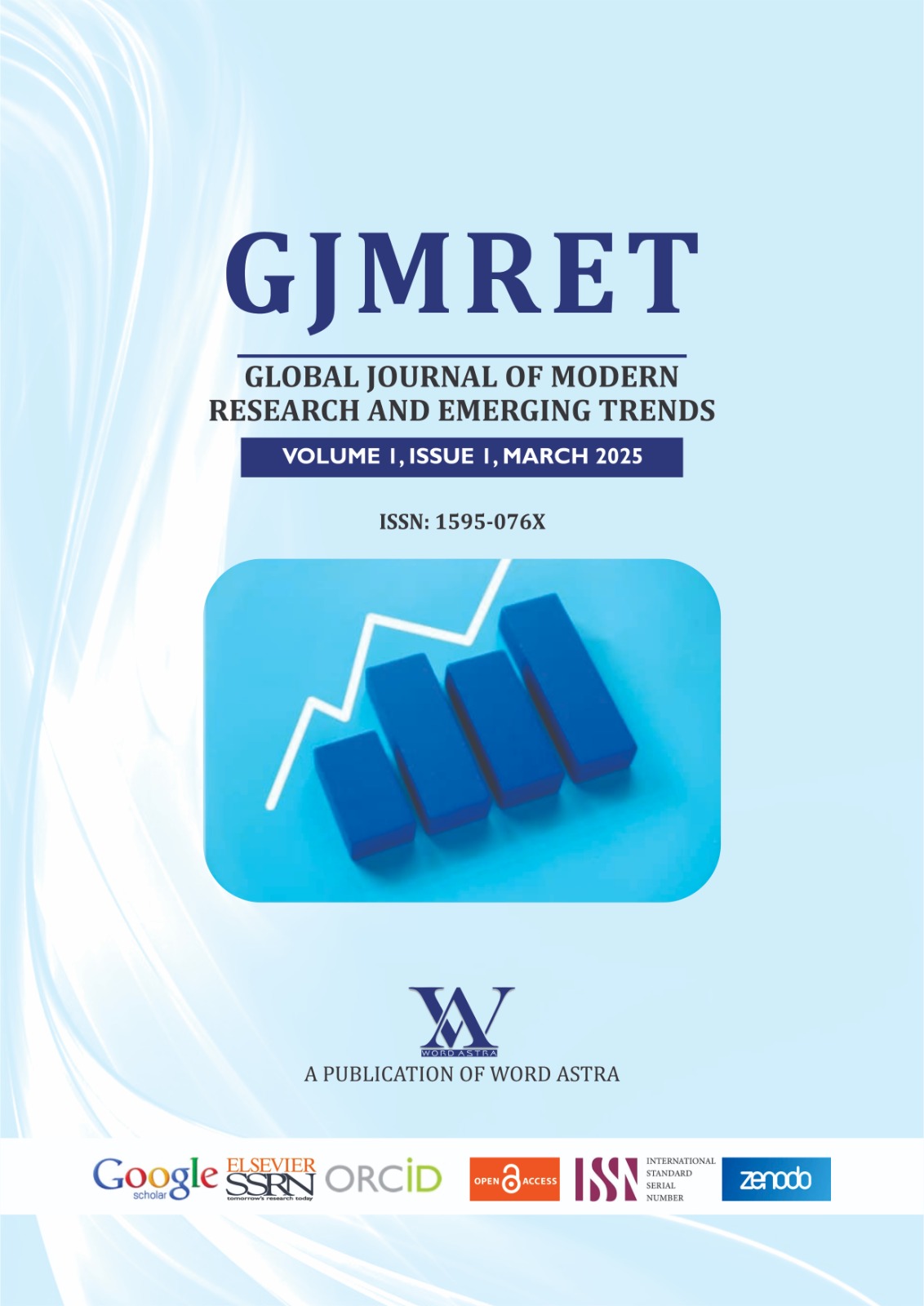
The Role of Artificial Intelligence and Machine Learning in Nigerian Accounting
Abstract The integration of Artificial Intelligence (AI) and Machine Learning (ML) into the accounting profession has significantly transformed traditional practices. This study examines the impact of AI and ML on the Nigerian accounting sector, focusing on their practical applications, benefits, challenges, and future prospects. Adopting a descriptive survey research design, the study collected primary data on AI and ML applications in Nigerian accounting. Also, inferential statistical methods, specifically multiple linear regression analysis, were employed to explore the relationship between AI adoption and accounting performance. The findings reveal a balanced representation across gender and educational qualifications. The majority of respondents (45%) fall within the 20–30 age bracket, followed by those aged 31–40 (33%) and 41–50 (22%). Gender distribution was equally split, with male and female participants each accounting for 50%. Furthermore, the results indicate that AI awareness has a coefficient of 0.58, suggesting a positive relationship between AI awareness and accounting performance. Similarly, the coefficient for AI usage is 0.43, demonstrating a positive and significant relationship between AI tool adoption and accounting performance. The intercept value of 2.35 represents the expected level of accounting performance when both AI awareness and AI usage are zero. Overall, the findings suggest a growing acceptance and utilization of AI and ML in Nigerian accounting. While the benefits are widely recognized, addressing challenges such as cost, complexity, and training requirements will be essential for broader adoption and optimal outcome
Download Article


